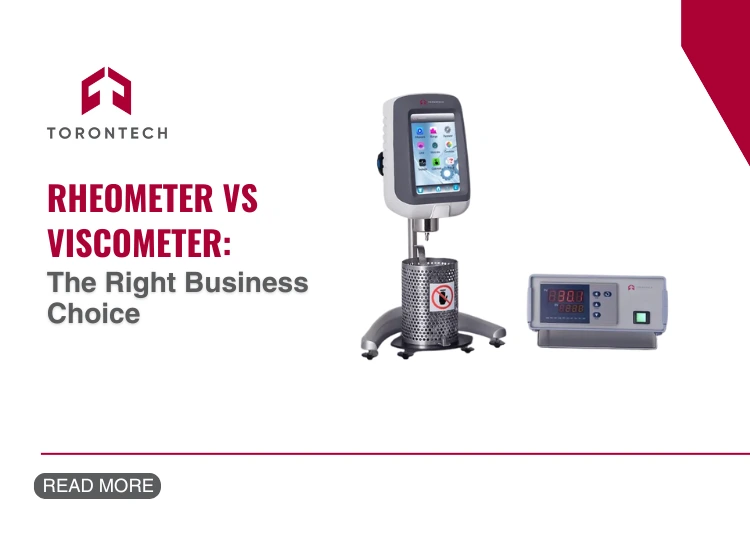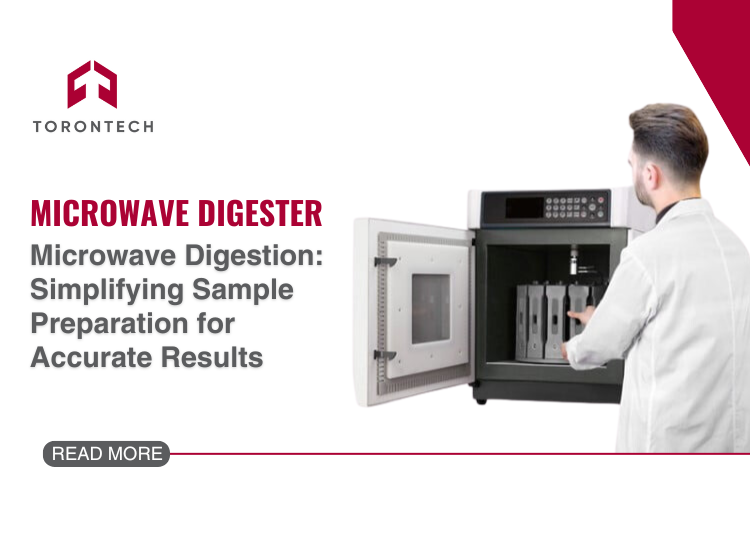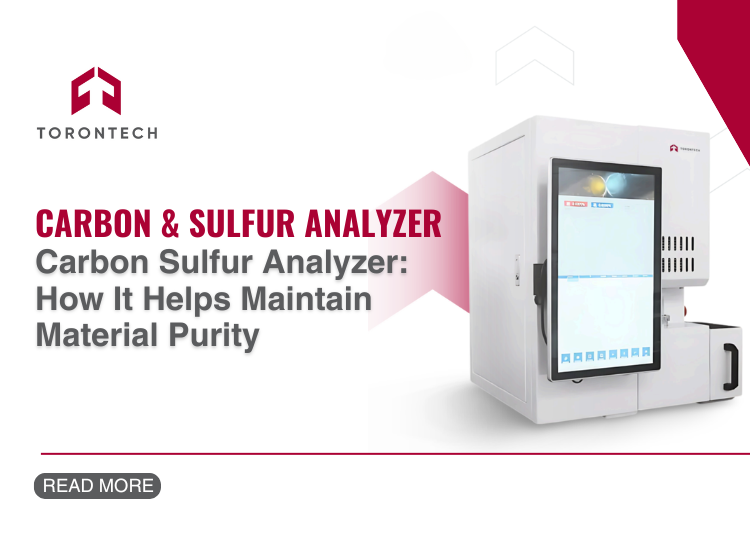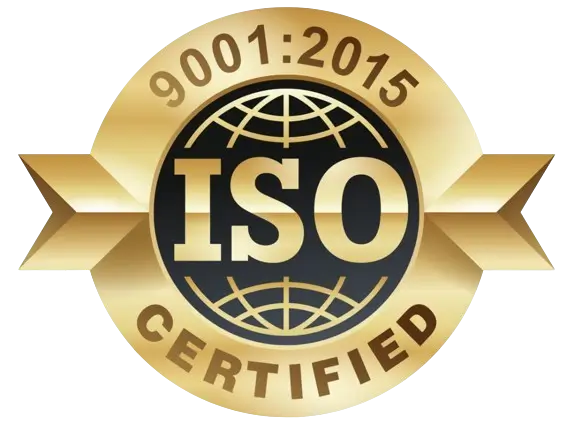Nothing disrupts a business more than an inconsistent product batch.
We believe achieving product consistency shouldn’t be a matter of guesswork, which is where the discussion on the difference between viscometer and rheometer begins. They both assess how your materials flow, but they are entirely different tools.
We’re here to provide a direct assessment of which one is the right fit for your operations.
The Core Difference: A Quick Number vs. a Complete Analysis
So, what is the real difference when you compare a viscometer and rheometer? It all comes down to the kind of answer your business requires.
A viscometer is your go-to operational tool. It is purpose-built to give you one piece of information with high precision: how thick or thin is our product right now?
- A Clear Example: A food company needs to confirm their sauce meets its thickness specification. The QC technician then does viscosity testing using one of our Digital Rotational Viscometers to get a precise value. Their only question is: “Is this batch’s viscosity in range?” The viscometer provides a clear “yes” or “no,” ensuring quality.
A rheometer, by contrast, is a scientific instrument that provides a complete analysis. It explains the reasons behind a material’s behavior.
- A Clear Example: The same company is formulating a new product. Their R&D team needs to know how it will perform and feel. A rheometer answers these deep formulation questions. The difference between viscometer and rheometer here is one of simple QC versus deep R&D.
Which is Best For You? A Practical Guide for Industrial Operations
Making the right choice in the viscometer vs rheometer debate comes down to your operational goals. For the vast majority of commercial quality and production applications, a high-quality digital viscometer is the clear, practical choice.
Get a Viscometer: The Smart Decision for Production and QC
We recommend a viscometer when your goals are operational efficiency and bulletproof quality assurance. The viscometer vs rheometer decision becomes simple when you need:
- Rapid Checks That Prevent Waste: A viscometer delivers the pass/fail data you need immediately. Our Krebs Stormer Viscometer, for example, is the standard for paints, providing a reliable Krebs Unit (KU) number that confirms consistency.
- An Easy-to-Operate Instrument: Your team doesn’t have time for extensive training. Our viscometers are designed with clear screens and intuitive controls, minimizing error in a fast-paced environment.
- Reliable, Repeatable Data: For industrial materials—be it adhesives, foods, or chemicals—you need a specific viscosity number. A viscometer and rheometer can both provide this, but the viscometer is purpose-built for this singular, critical task.
Consider a Rheometer for Fundamental Research Only
A rheometer is a powerful scientific instrument, but we view it as a specialized tool for labs focused on fundamental research. For a business focused on efficient production, the high cost and complexity of a rheometer often make it an impractical choice.
Key Features That Deliver Real-World Value
When you move past the theoretical difference between viscometer and rheometer and select a tool, certain features make a tangible difference. In our experience, these details matter:
- A Direct Viscosity Readout: We ensure our viscometers provide the viscosity value directly on the screen, eliminating errors from manual conversions.
- Integrated Temperature Measurement: Temperature has a direct effect on viscosity. A built-in temperature probe is a critical feature for any valid measurement.
- Reliable Data Output: The ability to connect to a computer or printer to log data is crucial for traceability and quality reports.
Your Viscometer Solution from Torontech
In the rheometer vs viscometer debate, our direct recommendation is this: for the vast majority of industrial quality control, a digital viscometer is the more intelligent, practical, and cost-effective investment. The practical choice boils down to understanding the core difference between viscometer and rheometer and how it applies to your workflow.
At Torontech, we are proud to offer a lineup of high-quality digital rotational viscometers designed for industrial applications. Our focus is on delivering instruments that are highly accurate while providing exceptional long-term value.
We invite you to explore our collection of viscometers on our product page or contact our team of experts today. We will help you select the perfect, cost-effective model to ensure your quality control is second to none.
Need the Right Viscosity Measurement?
Explore cost-effective Torontech viscometers for precise, reliable results.
Frequently Asked Questions (FAQ)
Can I use a rheometer as a viscometer?
You can, but the high cost and complexity are key factors in the viscometer vs rheometer decision, making a dedicated viscometer more efficient for routine QC.
What is a rotational viscometer?
It is the industry-standard type of viscometer. It functions by measuring the force needed to rotate a spindle within a liquid, giving a precise viscosity reading.
4. Why is the Krebs Stormer Viscometer a standard for paints?
It is an industry-specific instrument that measures in Krebs Units (KU), a required standard for many paint and coating applications under methods like ASTM D562.
5. What industries use your viscometer and rheometer alternatives?
Our viscometers are essential tools in dozens of industries, including paints, coatings, pharmaceuticals, food, cosmetics, chemicals, and adhesives—anywhere fluid consistency is critical.








